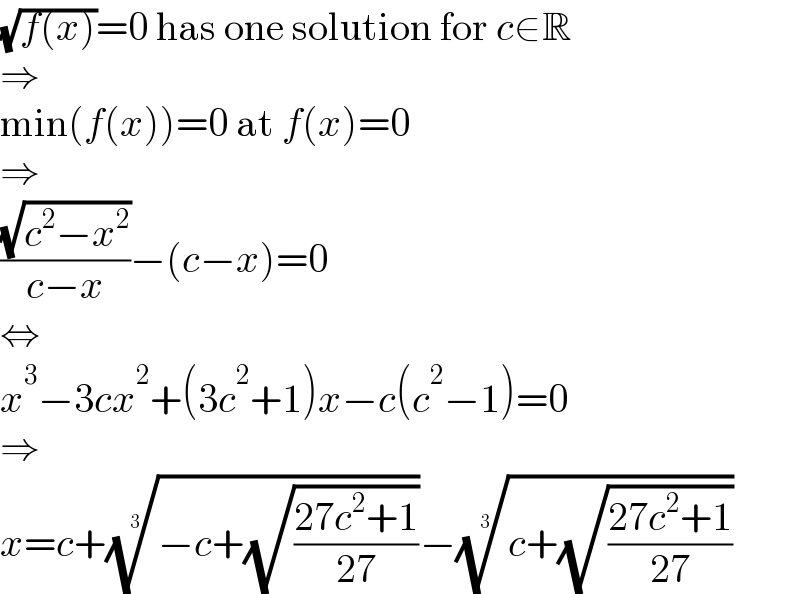
Question and Answers Forum
Question Number 164462 by ajfour last updated on 17/Jan/22

Commented by ajfour last updated on 17/Jan/22

Commented by MJS_new last updated on 17/Jan/22

Answered by MJS_new last updated on 17/Jan/22

Answered by mr W last updated on 17/Jan/22

